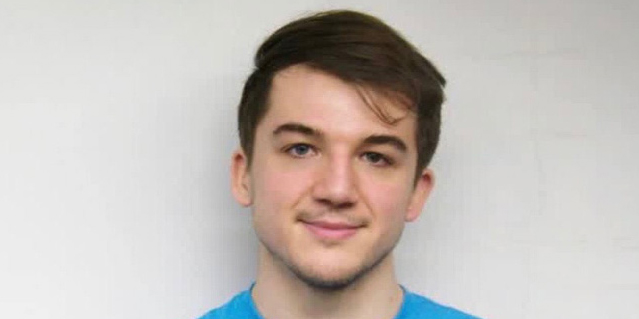Jack Andraka ’19, a double major in electrical engineering and anthropology who has developed medical devices to address a range of public health concerns, was named a 2018 Truman Scholar on April 12.
The scholarship, awarded in honor of former U.S. President Harry Truman, recognizes students across the country who plan to pursue careers in public service. It awards each Scholar $30,000 to put towards graduate education. Andraka was one of 59 Truman Scholars who were selected from a pool of more than 750 students nominated by their institutions.
In order to become a Truman Scholar, Andraka first earned a nomination from a Stanford faculty representative. He was then evaluated by the Truman Finalist Selection Committee on his history of community service, academic accomplishments and potential to change the world, as shown in his interview and in the application he submitted.
The application also required him to submit three letters of recommendation and a policy proposal tackling a challenge he cares about.
There is no shortage of community challenges that matter to Andraka, especially in the public health domain. Andraka was already an acclaimed medical researcher in high school, when he designed a sensor to detect pancreatic cancer in its early stages. The sensor, which is currently being put into production by a biotech firm, is just one of his inventions.
When Andraka began working in Tanzania to combat HIV/AIDS, he found that, although some health disparities in the area he studied were related to the disease, a surprising proportion were correlated with contaminated water.
“So from there I started looking at, ‘Well, what possibly could be causing this?’” Andraka explained. “And it actually turned out there are a bunch of mines, especially gold mines, located upstream. So they are contaminating the water sources with things like cyanide, arsenic, all sorts of nasty metals.”
Andraka then created a small strip that can detect a variety of water contaminants — 28 in total — within five minutes. The strip costs less than one cent to produce.
The water sensor has since been used to collect over 100,000 data points. He says it has already helped improve public health, as shown by measurements like reduced child mortality in areas of use.
Andraka has also conducted research on the Ebola outbreak in Sierra Leone, where he plans to spend a year finishing his project after graduation. He also plans to complete a coterminal master’s degree in electrical engineering before earning a joint degree in either medicine and public health or a M.D./Ph.D. research program.
Following his graduate education, he envisions working at the Center for Disease Control and Prevention (CDC), where he hopes to build better public health infrastructure in local communities. Andraka says this aim is sometimes under-prioritized in the field of public health.
“No, we don’t need giant MRIs. We need basic healthcare. HIV/AIDS drugs. Antibiotics. Making sure there’s enough doctors. They aren’t really politically sexy. You can’t do a ribbon cutting on, ‘Oh yes, let’s redirect funding towards local healthcare infrastructure,’” said Andraka.
Among his many endeavors, Andraka is also working on an initiative to address disparities in the treatment LGBTQ+ individuals receive while finishing his pre-med requirements.
Andraka joked that his ability to work on so many projects at once is enabled by “a horrible sleep schedule and poor time management.”
He said, “I feel a lot of [my work] is emailing professors and being like ‘here’s a cool project, let’s go work on this!’ And doing a little bit every day.”
Reflecting on his scholarship, Andraka expressed gratitude for his professors and friends who enhanced his academic journey.
“Winning this isn’t just a validation of my efforts,” he said, “It’s a validation of all my collaborators’ efforts as well. To have these large successes that we have, this hasn’t just been me going in, being like ‘Woohoo, I’m Superman!’ No, it’s really this large-scale effort.”
Contact Mini Racker at mracker ‘at’ stanford.edu
